Roses are one of the most beloved and timeless flowers found in gardens around the world. With their iconic blooms, lush colors, and rich symbolism, roses captivate gardeners and florists alike. But did you know that there are hundreds of rose varieties, each with unique growth habits, bloom styles, and care needs?
Choosing the right type of rose for your garden can feel overwhelming, especially with options ranging from classic Old Garden Roses to modern hybrid marvels. This ultimate guide will help you understand the major types of roses, breaking them down by categories and varieties, so you can confidently select the perfect blooms for your space—whether you’re a seasoned gardener or just planting your first rose bush.
Table of Contents
The 3 Main Categories of Roses
Before diving into specific types, it’s helpful to understand that roses are generally grouped into three major categories: Old Garden Roses, Wild Roses, and Modern Roses. Each group has its own distinct traits, history, and purpose in the garden.
Old Garden Roses
Also known as heritage or antique roses, Old Garden Roses are varieties that existed before 1867—the year the first hybrid tea rose was introduced. These historic roses are renowned for:
- Strong fragrance
- Elegant, full-petaled blooms
- Exceptional disease resistance
- Once-per-season blooming
Their timeless charm makes them a favorite among traditionalists and low-maintenance gardeners. If you’re drawn to romantic, classic aesthetics and hardy plants, Old Garden Roses are a wonderful option.
Wild Roses
As their name suggests, Wild Roses (also called species roses) grow naturally without human intervention. They are the ancestors of all modern rose varieties. Characterized by:
- Simple five-petal blooms
- Usually pink flowers
- Single annual bloom
- Thorny, hardy canes
Though not as showy as hybrids, Wild Roses are valued for their toughness, natural beauty, and role in supporting native pollinators.
Modern Roses
The most popular group today, Modern Roses were bred after 1867. They were developed primarily for:
- Continuous blooming
- Larger and more colorful flowers
- Improved vase life
However, they often lack strong fragrance and may be less hardy than older types. Still, their stunning appearance and variety make them a go-to choice for both landscape and cut flower purposes.
Common Types of Roses (by Variety)
Now that you understand the three main categories, let’s look at the most popular types of roses you’ll find in home gardens. These varieties are bred for different looks, growth habits, and care needs—making it easier to find the perfect fit for your space.
Climbing Roses
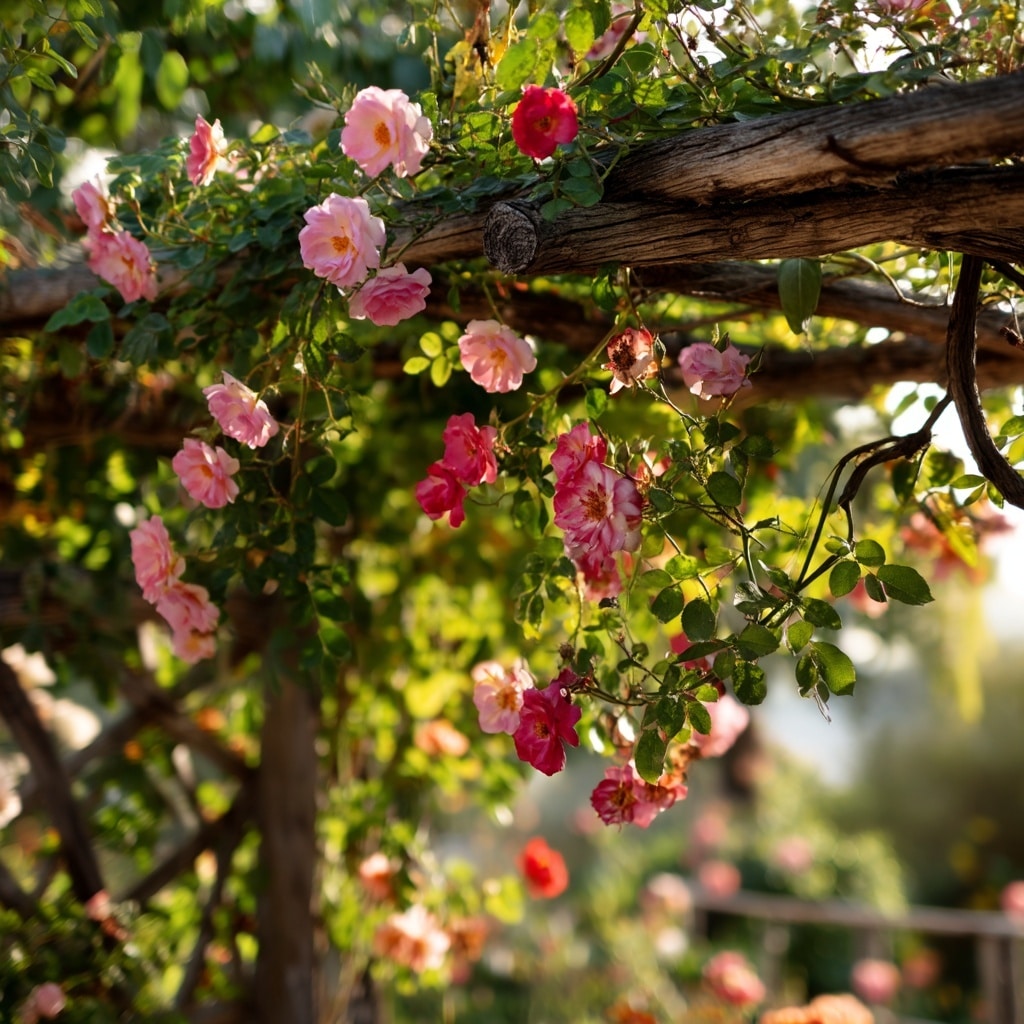
Despite the name, climbing roses don’t actually cling like vines. Instead, they produce long, arching canes that can be trained to grow up trellises, fences, and arbors with a bit of support. Most climbing roses are repeat bloomers and can grow up to 15 feet tall.
Key traits:
- Large, often fragrant flowers
- Best when trained horizontally for more blooms
- Ideal for vertical garden features
Hybrid Tea Roses
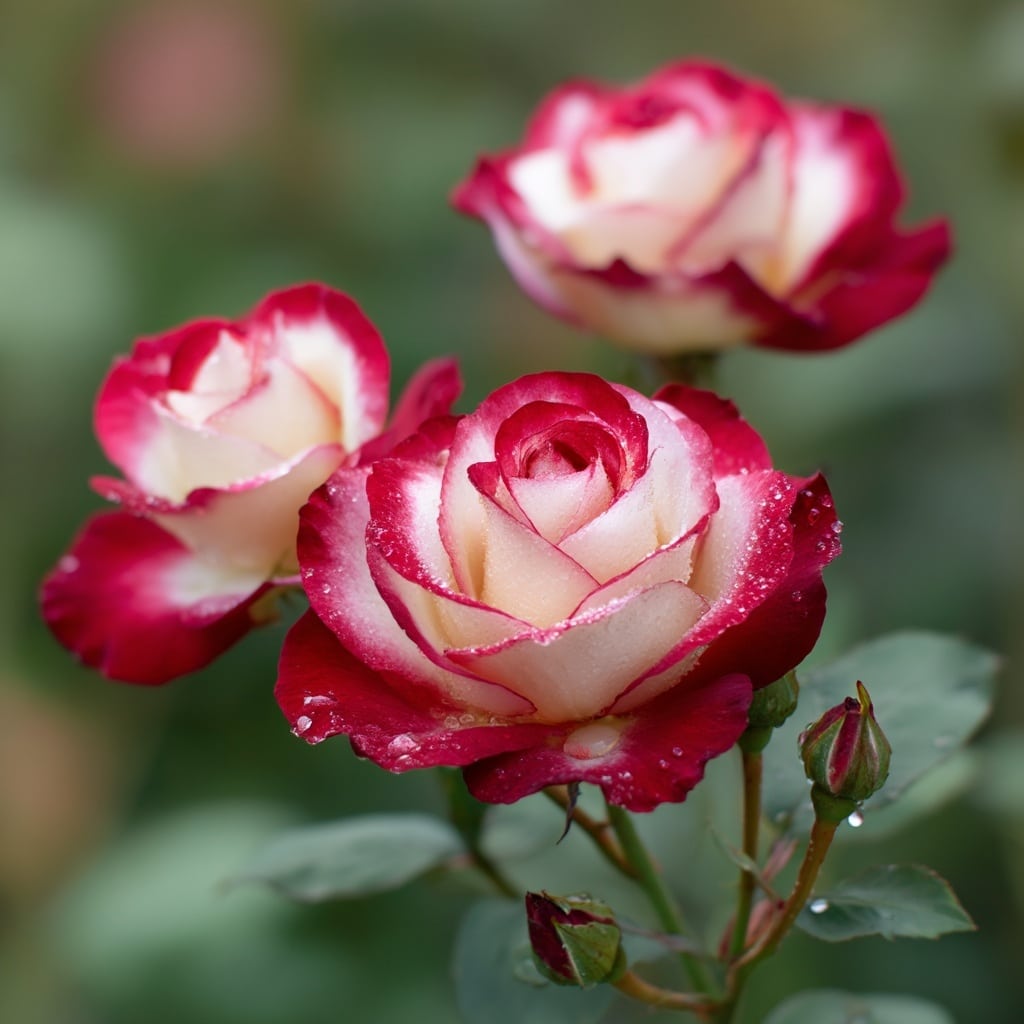
Possibly the most iconic rose variety, hybrid tea roses feature tall, upright stems with single, large blooms—perfect for cutting gardens and bouquets.
Key traits:
- Bloom size: up to 50 petals
- Long stems (great for floral arrangements)
- Reblooms in cycles
- Requires regular care and pruning
Grandiflora Roses
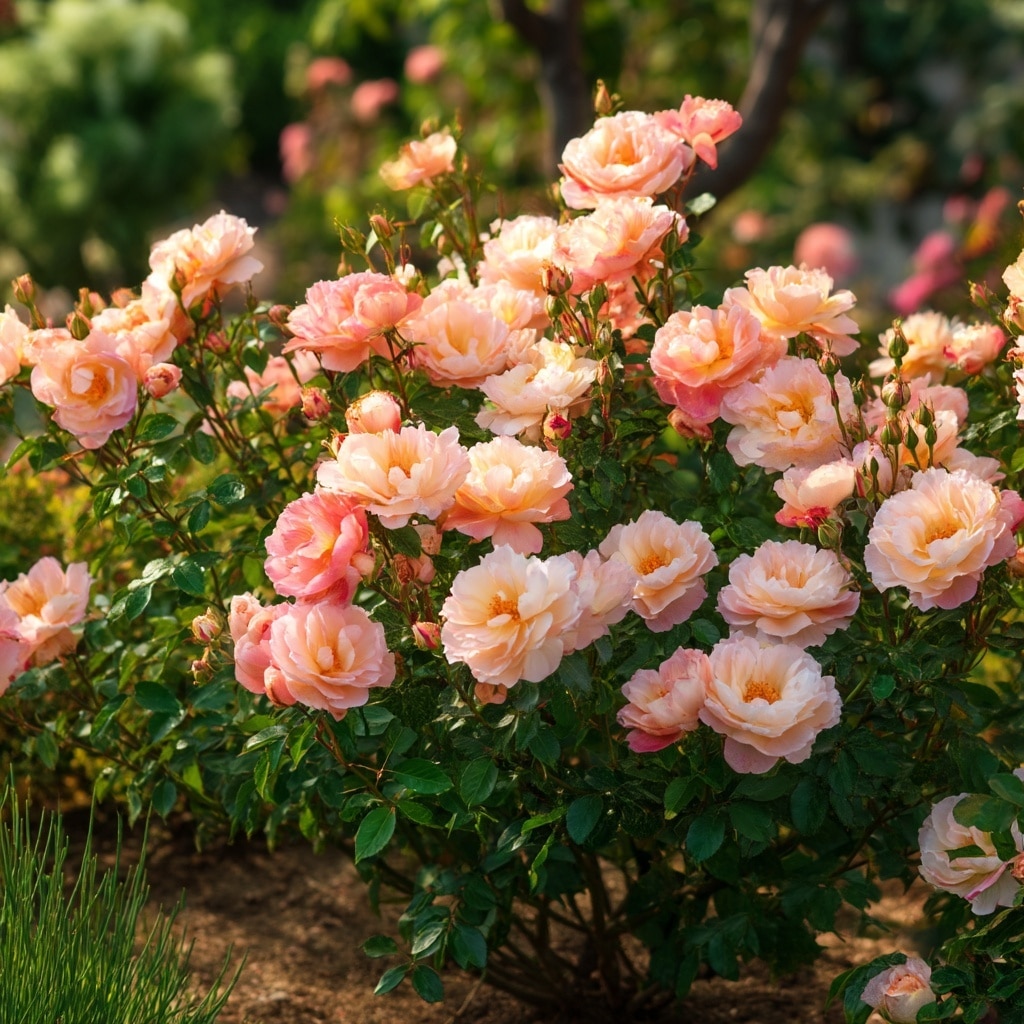
A cross between hybrid teas and floribundas, grandiflora roses offer the best of both worlds: elegant, clustered blooms on tall shrubs.
Key traits:
- Clusters of 3–5 large flowers
- Taller and bushier than hybrid teas
- Great for borders or focal points
- Continuous blooming with minimal gaps
Floribunda Roses
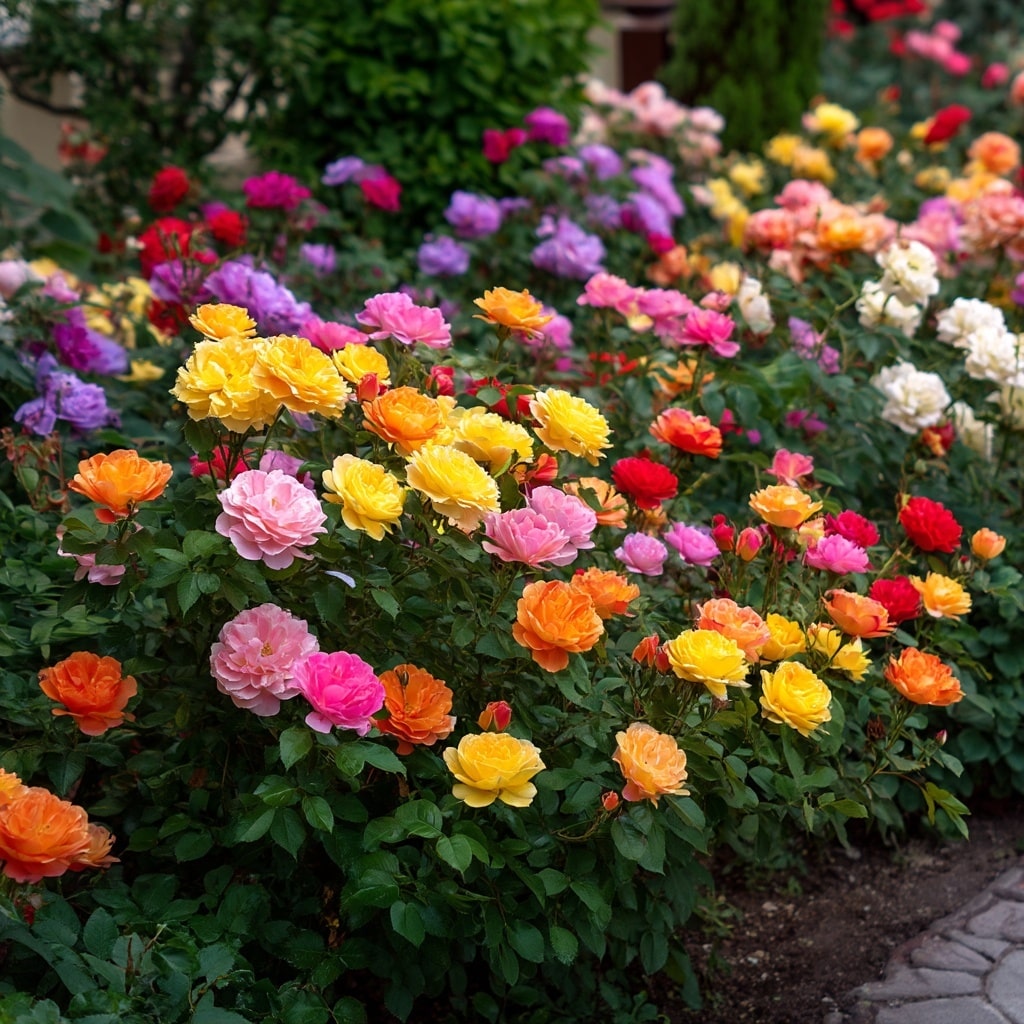
Known for their prolific clusters of blooms, floribundas are highly favored for their low-maintenance care and continuous flowering throughout the season.
Key traits:
- Dense flower clusters
- Compact growth (great for small gardens)
- Blooms longer than hybrid teas
- Hardy and disease-resistant
Polyantha Roses
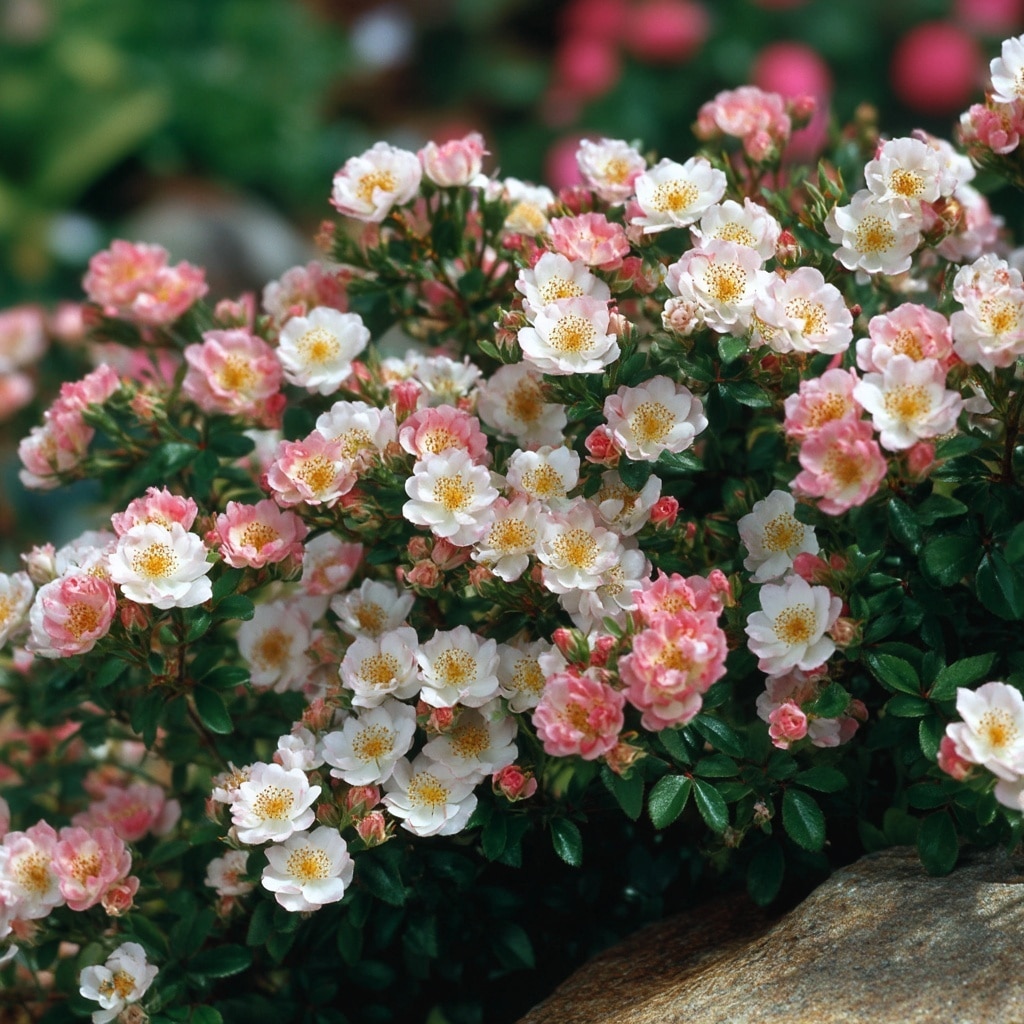
A smaller cousin to floribundas, polyantha roses are compact shrubs that bloom heavily from spring to fall.
Key traits:
- Small, clustered blooms
- Ideal for hedges or edging
- Hardy and low-maintenance
- Available in white, pink, and red
Miniature Roses
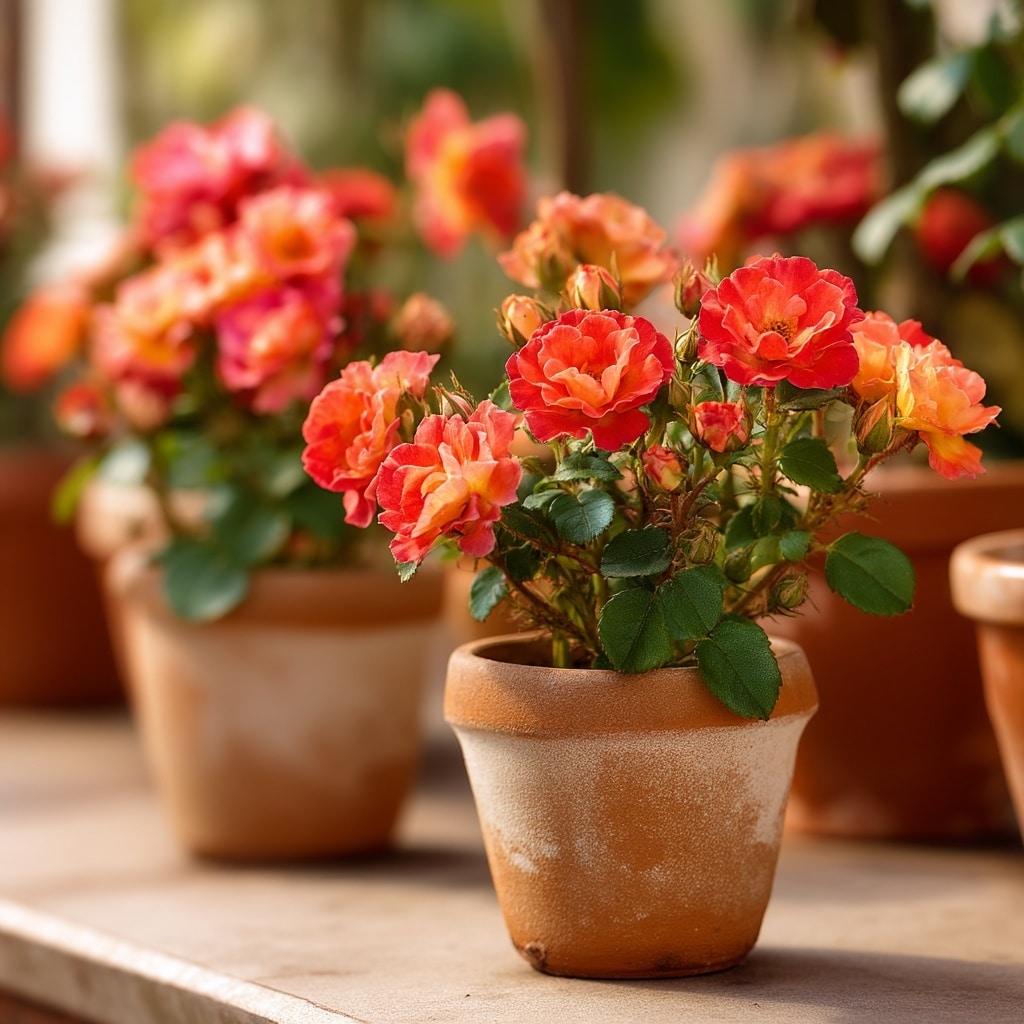
Don’t be fooled by their size—miniature roses pack a big punch in a small form. They mimic the look of hybrid teas but stay under 30 inches tall.
Key traits:
- Great for pots, balconies, and borders
- Reblooms well
- Comes in a wide range of colors
- Low space requirement
Shrub Roses
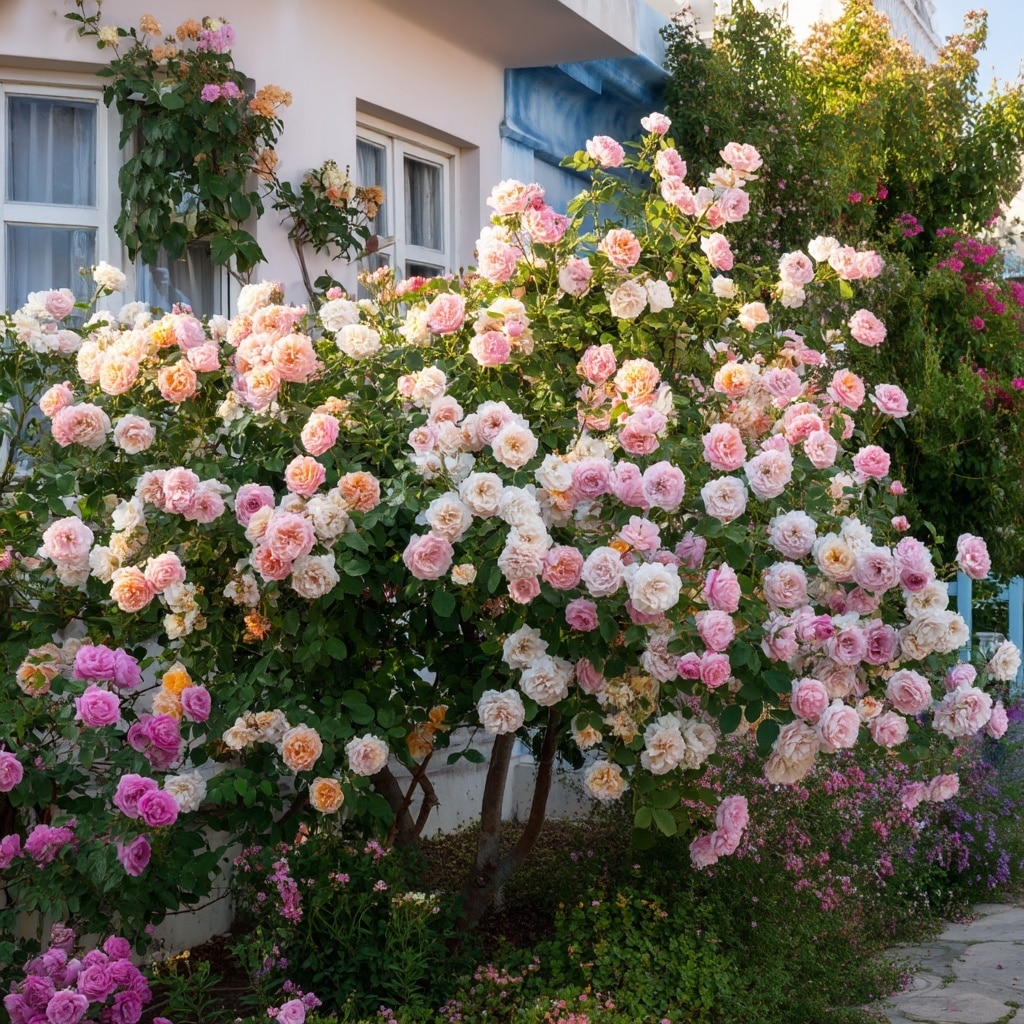
These roses are bred for hardiness and versatility, often growing wide and bushy with minimal care. Many are suited to cold climates.
Key traits:
- Sprawling growth habit (up to 15 feet wide)
- Cold-hardy and disease-resistant
- Clusters of colorful blooms
- Includes popular subgroups like David Austin Roses
Groundcover Roses
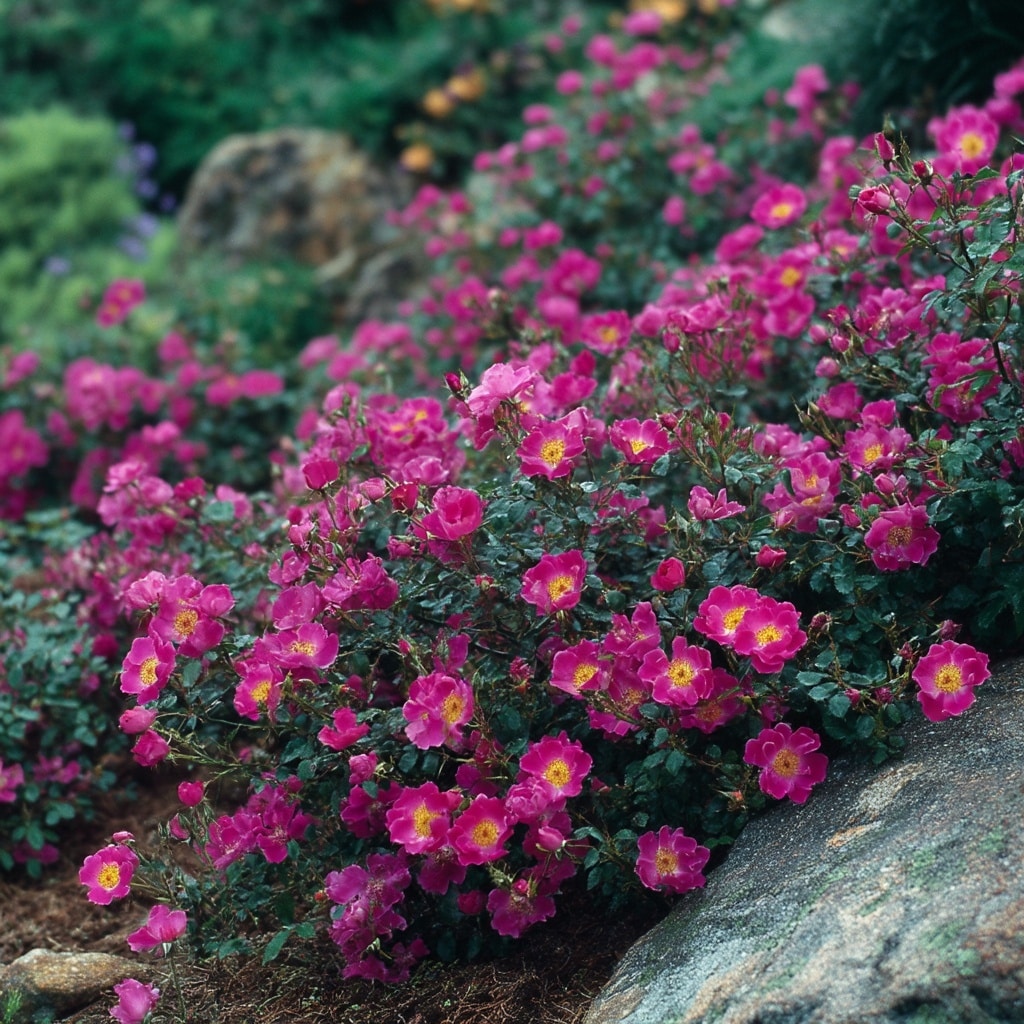
Also known as landscape roses, these are low-growing, spreading plants that bloom heavily with minimal upkeep.
Key traits:
- Height: under 3 feet
- Ideal for mass planting or erosion control
- Very disease- and pest-resistant
- Long blooming season
Alba Roses
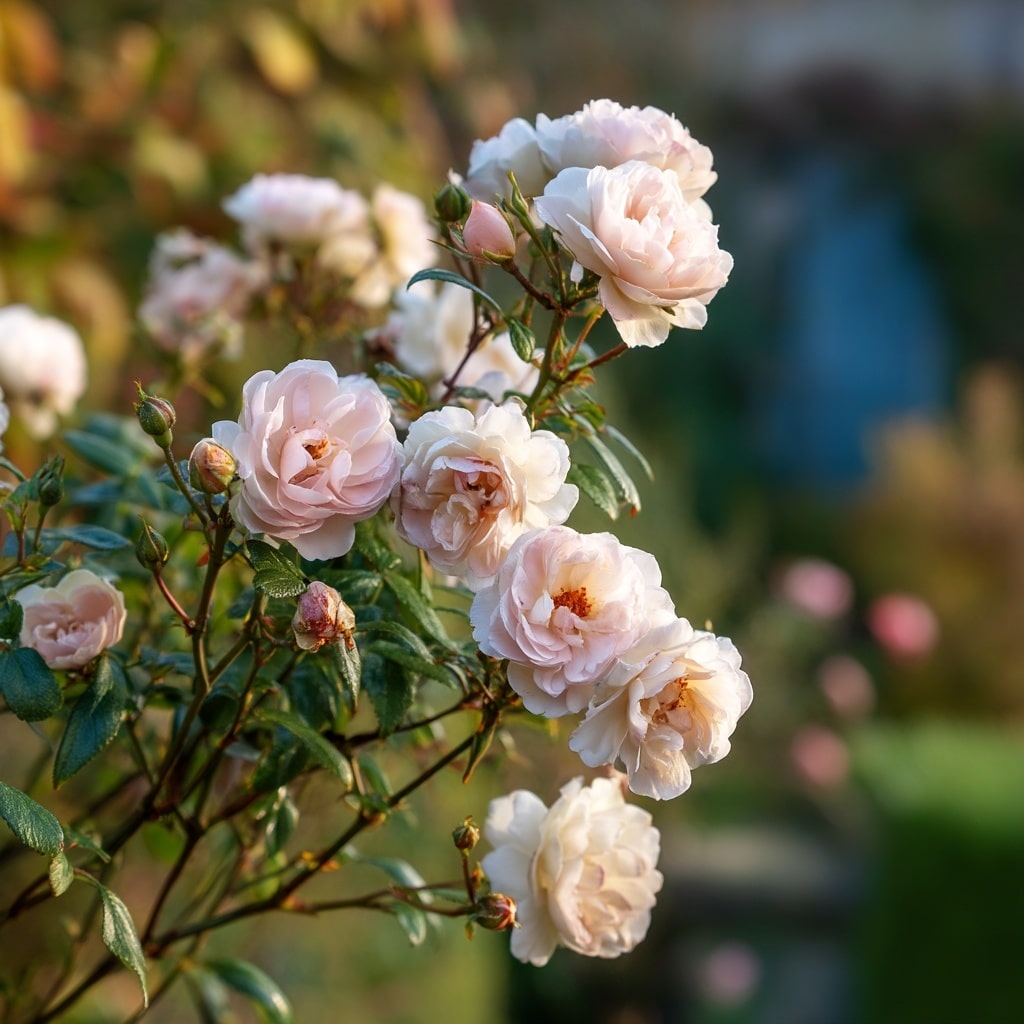
One of the oldest rose varieties, Alba roses date back to Roman times. They grow tall and offer cool-toned foliage and pastel blooms.
Key traits:
- Blooms in late spring to early summer
- Lightly fragrant white or soft pink flowers
- Shade tolerant
- Excellent disease resistance
Bourbon Roses
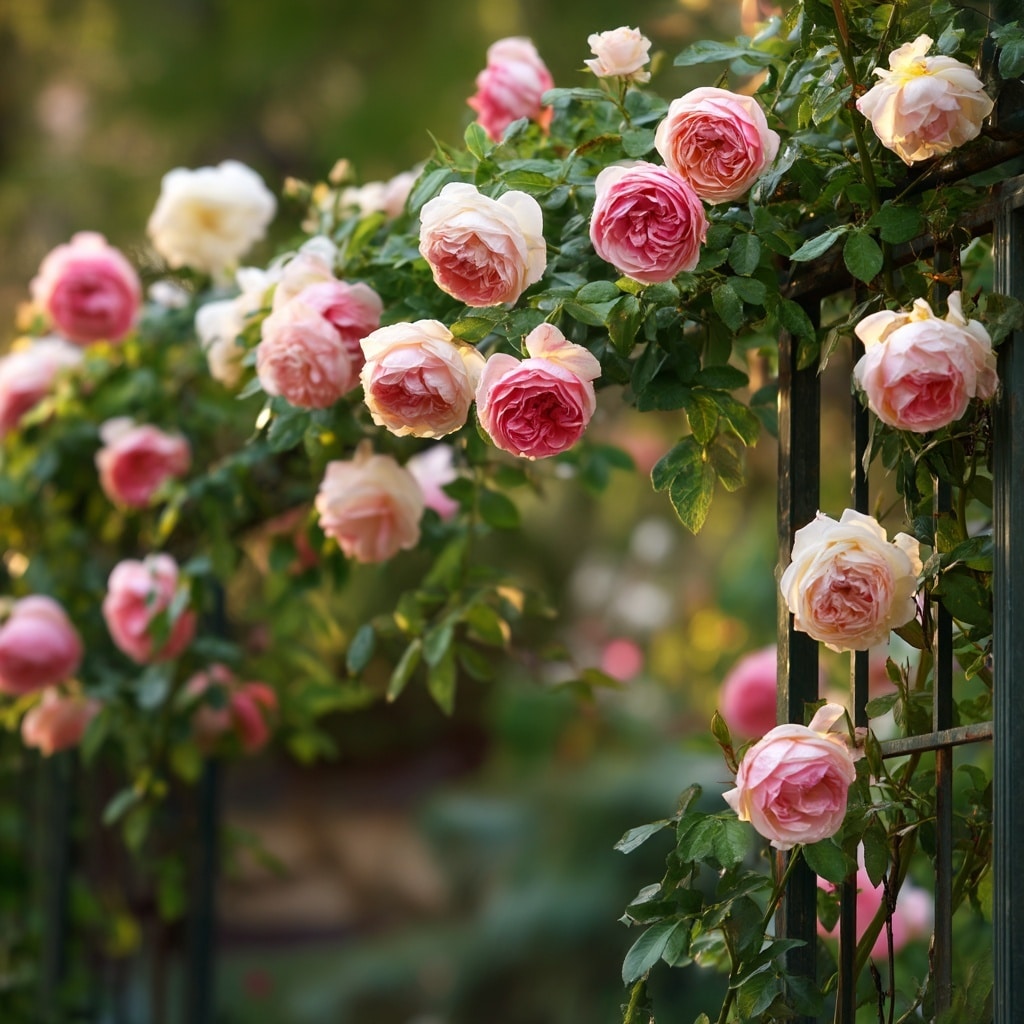
A romantic, richly scented variety, Bourbon roses are a cross between China and Damask roses.
Key traits:
- Large, full blooms in pink, red, or white
- Repeat bloomers
- Fragrant and ideal for training on trellises
- Needs support and pruning
Centifolia Roses
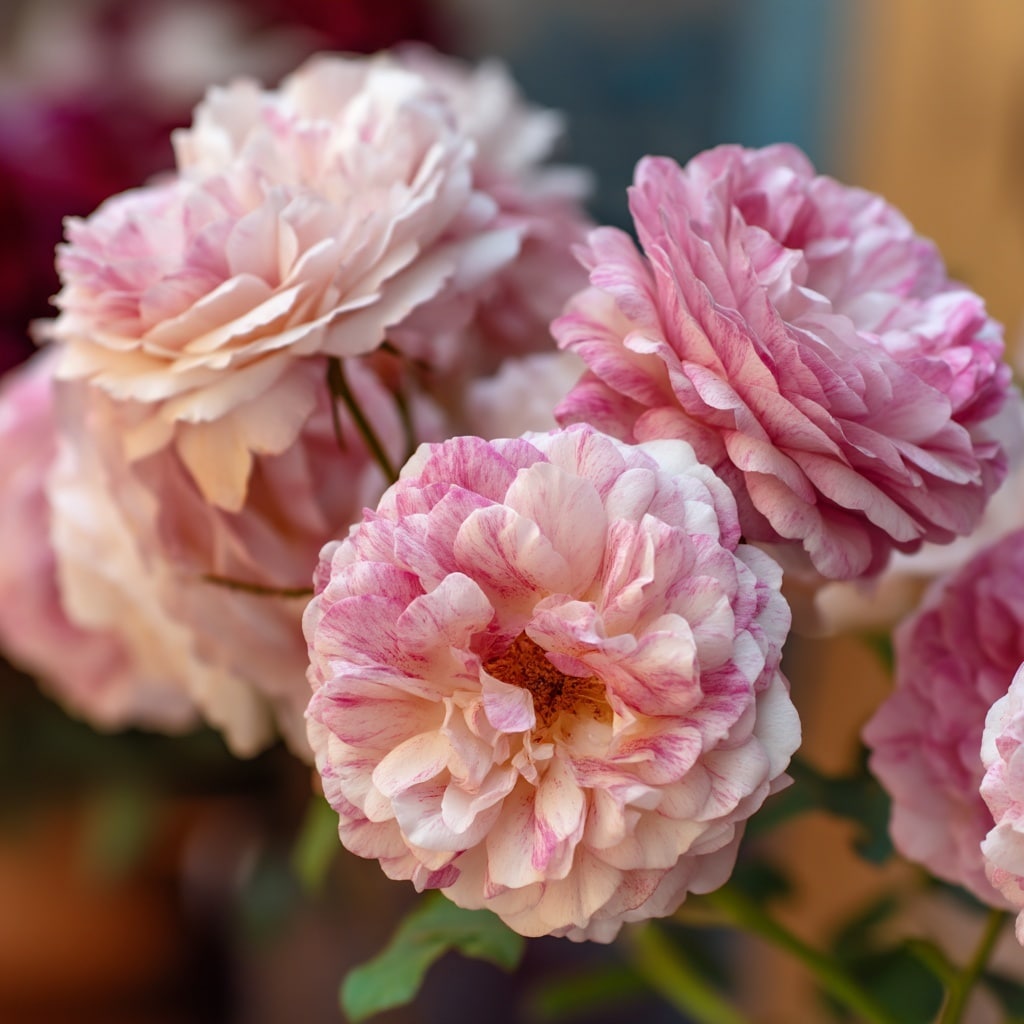
Also called “cabbage roses,” these have a dense petal structure that gives them a lush, old-fashioned look.
Key traits:
- Strongly fragrant
- Used in perfumes and essential oils
- Blooms once in early summer
- Best suited for traditional gardens
English / David Austin Roses
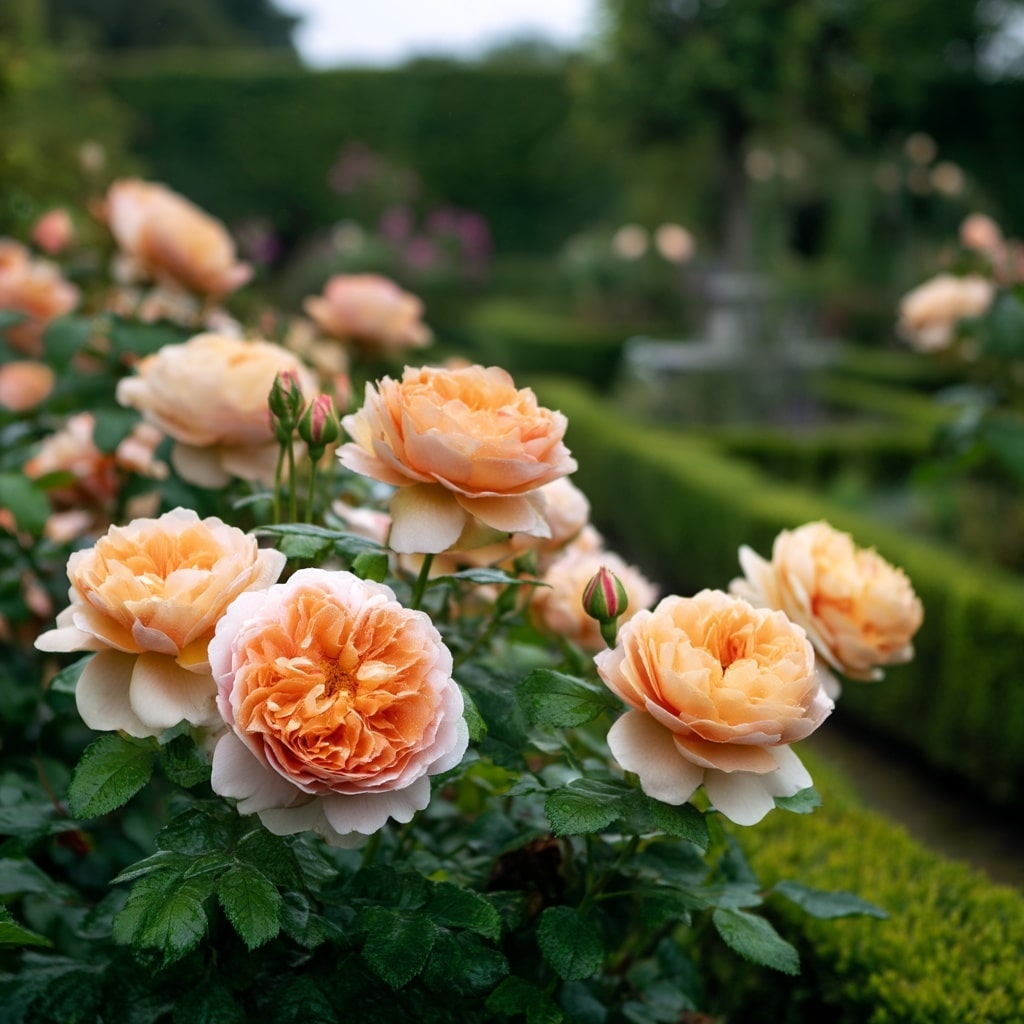
These modern shrub roses were bred to combine the fragrance of Old Roses with the repeat blooming of modern types.
Key traits:
- Rosette-shaped flowers
- Wide color range
- Repeat bloomers
- Higher maintenance and less disease resistant
China Roses
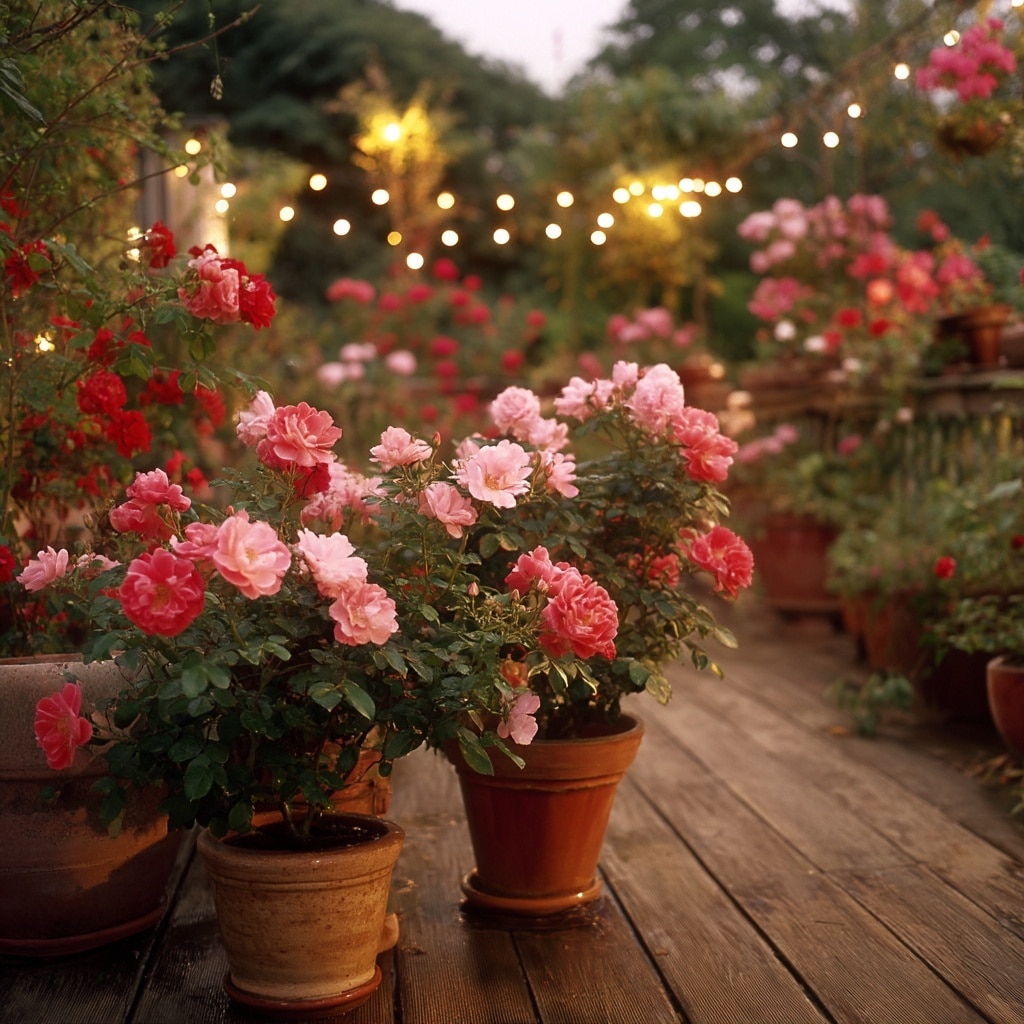
Introduced to Europe in the 18th century, China roses brought reblooming traits to Western breeding programs.
Key traits:
- Bushy and compact
- Blooms from summer through fall
- Delicate petals
- Best grown in containers for winter protection
Damask Roses
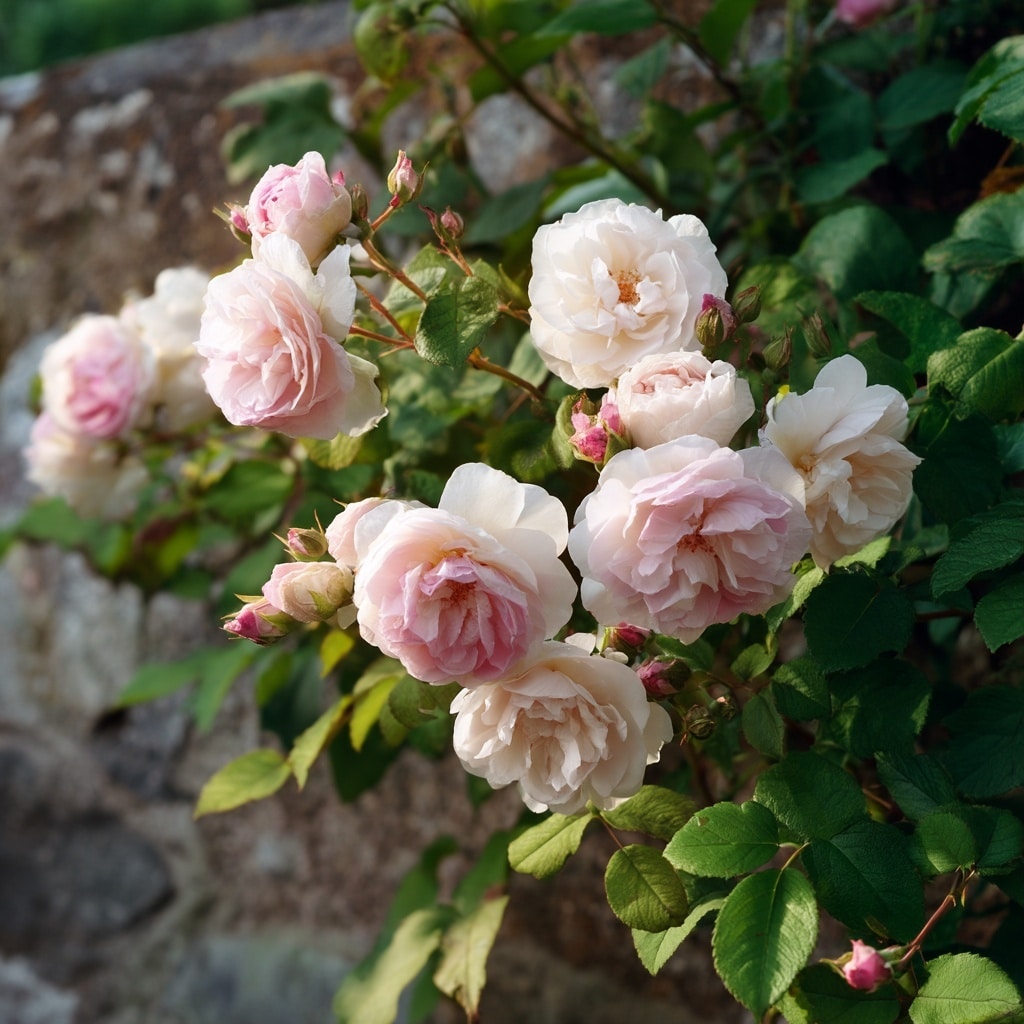
These ancient roses have been used in perfumery for centuries. There are two main types: Summer Damask and Autumn Damask.
Key traits:
- Highly fragrant blooms
- Used for essential oil extraction
- Usually pink or white
- Bloom once or twice per year
Gallica Roses
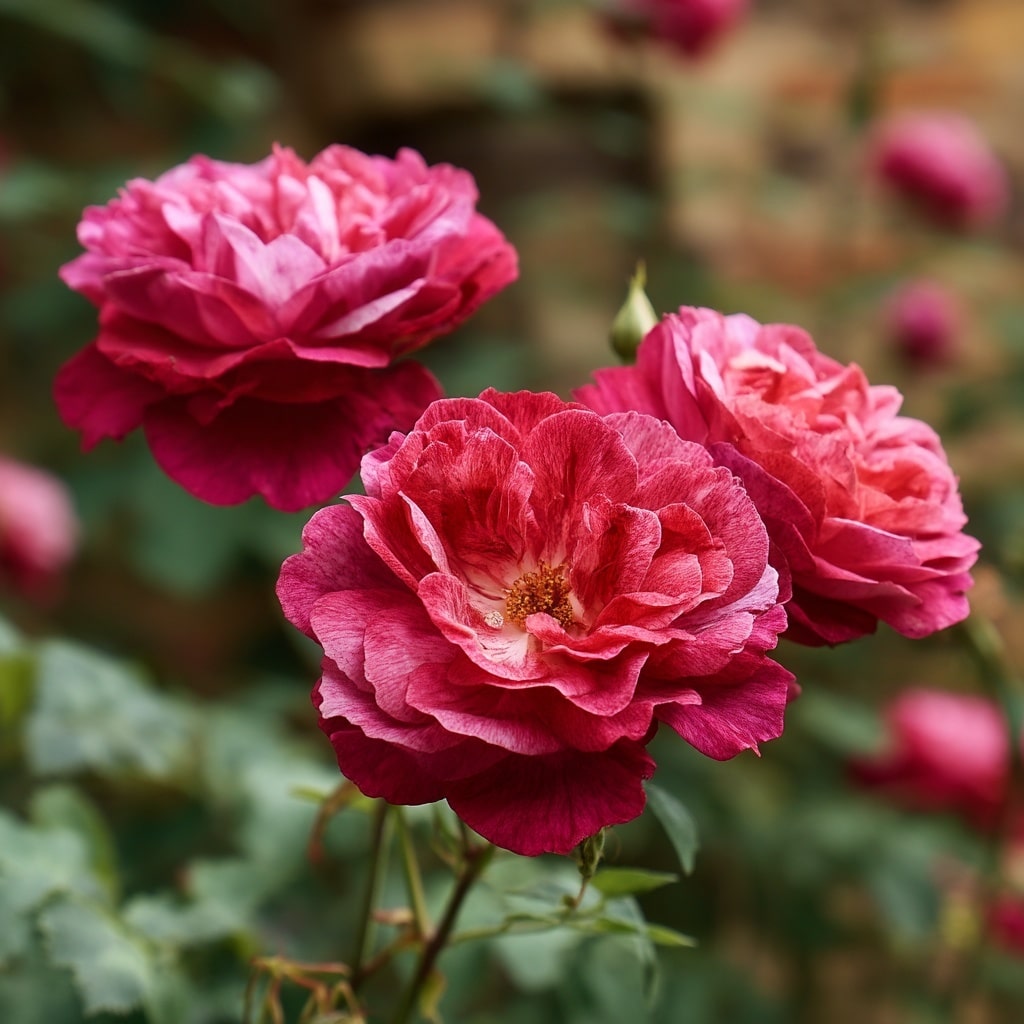
Gallica roses are some of the hardiest Old Garden Roses, often found in historical gardens across Europe.
Key traits:
- Compact bushes
- Blooms once per season
- Fragrant, richly colored flowers
- Tolerates cold and partial shade
Choosing the Right Rose for Your Garden
With so many different types of roses, choosing the right one comes down to your personal style, climate, and level of gardening experience. Here’s a quick guide to help you decide:
💡 Consider These Factors:
- Space: Miniature, polyantha, and groundcover roses are ideal for small gardens or containers. Shrub and climbing roses work better in larger areas.
- Climate: Choose hardy varieties like Old Garden Roses, Alba, or Shrub Roses if you live in a colder region.
- Fragrance: If scent is a priority, go with Damask, Centifolia, or David Austin Roses.
- Maintenance: Low-maintenance gardeners will appreciate Floribunda, Groundcover, or Polyantha roses for their disease resistance and continuous blooming.
Conclusion
Whether you’re designing a formal rose garden or simply want a few cheerful blooms by the patio, understanding the different types of roses helps you make the right planting decisions. Each variety offers its own blend of beauty, fragrance, and personality.
Take the time to match a rose’s needs with your garden’s conditions, and you’ll enjoy vibrant, thriving plants for years to come.


